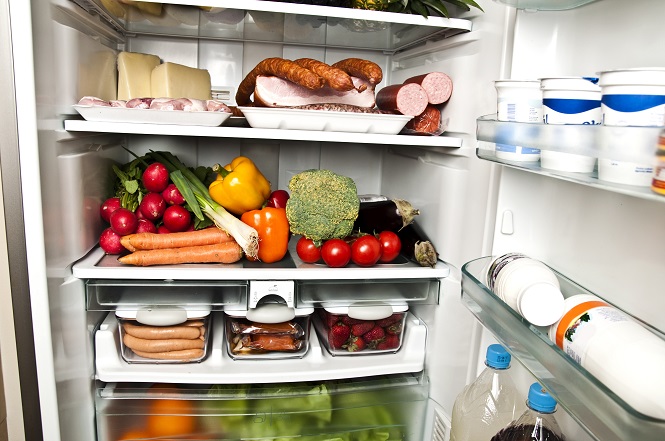 In April, I was part of a Twitter party hosted by NBCUniversal’s Green is Universal that was dedicated to the issue of reducing food waste. As I was prepping for the party, I was surprised to learn how much of an issue food waste is in our country but encouraged by how easy it is to reduce food waste in our own homes.
In April, I was part of a Twitter party hosted by NBCUniversal’s Green is Universal that was dedicated to the issue of reducing food waste. As I was prepping for the party, I was surprised to learn how much of an issue food waste is in our country but encouraged by how easy it is to reduce food waste in our own homes. Some startling statistics I learned about food waste:
- The average person wastes 244 pounds of food each year, roughly the same weight as a refrigerator.
- A family of four spends $2,275 on groceries that are never eaten.
- According to a 2014 study from the U.S. Department of Agriculture (USDA), “In the United States, 31 percent – or 133 billion pounds – of the 430 billion pounds of the available food supply at the retail and consumer levels in 2010 went uneaten. The estimated value of this food loss was $161.6 billion using retail prices.”
- The U.S. spends about 1 billion dollars a year just to dispose of food waste. According to the Environmental Protection Agency (EPA), food leftovers are the single-largest component of the waste stream by weight in the United States.
- In 2013, 14.3 percent of households (17.5 million households, approximately one in seven), were food insecure. This is down slightly from 14.9 percent food insecure in 2008 and 2009, which was the highest number recorded since these statistics have been kept.
- Food waste creates billions of tons of greenhouse gases and needlessly consumes precious land and water resources.
Some easy tips to help you reduce food waste in your home:
- Freeze food that’s almost expired in order to preserve it and make sure you eat your leftovers.
- Compost your food waste. Many cities and towns have community drop-off points or municipal pickups.
- Keep cilantro and parsley stems, onion peels, celery leaves, mushroom stems and other veggie scraps in a bag in your freezer. When you have enough, simmer them into a stock for soup. The Zero-Waste Chef has a great step-by-step vegetable broth recipe.
- If you’ve cooked too much food and know you won’t eat your leftovers, share the extras with friends, family or co-workers. They’ll thank you, and your food won’t go to waste.
- Eat before you shop. Food shopping on a full stomach can help you avoid impulse purchases, which often wind up as food waste. Create a menu for the week and purchase only the food you need to make your menu items.
- Use stale bread for French toast, bread pudding, croutons, fondue, meatballs or French onion soup.
- Combine small mixed scraps of cheese to make fondue, macaroni and cheese, salad or sliced fruit toppers.
- Practice First In, First Out, which means that when you are unpacking groceries, move older products to the front of the fridge/freezer/pantry and put the new stuff in the back. This way, you’re more likely to use up the older stuff before it expires.
- Monitor what you throw away. If you’re always tossing a certain item every week, either buy less of it or, if appropriate, freeze it. For example, if you’re throwing half a loaf of bread each week, it could be time to freeze half the loaf the moment you bring it home so it doesn’t go stale before you’re able to eat it.
- Designate one dinner each week as a “use-it-all-up” meal. Instead of cooking a new meal, look around in the cupboards and fridge for leftovers and other food that might otherwise get overlooked.
For more great tips on reducing food waste and wonderful zero-waste recipes, visit The Zero-Waste Chef.
For easy solutions to fighting food waste whether you are at home, school or your place of business, visit EndFoodWaste.org.